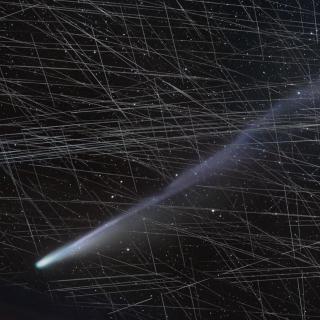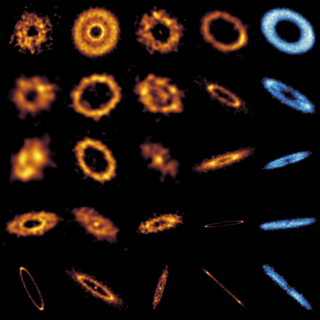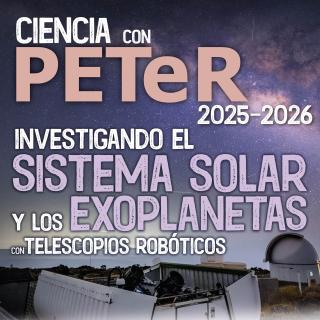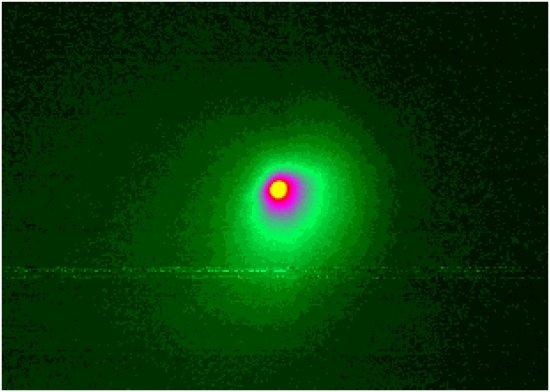It may interest you
-
 The Instituto de Astrofísica de Canarias (IAC), through its Communication and Scientific Culture Unit (UC3) and in collaboration with the Museum of Science and the Cosmos (MCC), part of Tenerife Museums, publishes the astronomical events for the year 2026 in its traditional calendar. The year 2026 will be marked by a total solar eclipse on 12 August, which will not be visible from the Canary Islands, but will be 70 per cent partial. In addition, 2026 will see the arrival of new comets, meteor showers and other interesting astronomical events. The IAC's 2026 Calendar is illustrated with aAdvertised on
The Instituto de Astrofísica de Canarias (IAC), through its Communication and Scientific Culture Unit (UC3) and in collaboration with the Museum of Science and the Cosmos (MCC), part of Tenerife Museums, publishes the astronomical events for the year 2026 in its traditional calendar. The year 2026 will be marked by a total solar eclipse on 12 August, which will not be visible from the Canary Islands, but will be 70 per cent partial. In addition, 2026 will see the arrival of new comets, meteor showers and other interesting astronomical events. The IAC's 2026 Calendar is illustrated with aAdvertised on -
 An international team, with participation from the University of La Laguna (ULL) and the Instituto de Astrofísica de Canarias (IAC), have, for the first time, captured a detailed snapshot of planetary systems in an era long shrouded in mystery. The study, called ALMA survey to Resolve exoKuiper belt Substructures (ARKS) , is based on a series of 10 articles published simultaneously in the journal Astronomy and Astrophysics and was carried out using the Atacama Large Millimetre/submillimetre Array (ALMA) . Thanks to this work, the sharpest images ever of 24 debris disks, the dusty belts leftAdvertised on
An international team, with participation from the University of La Laguna (ULL) and the Instituto de Astrofísica de Canarias (IAC), have, for the first time, captured a detailed snapshot of planetary systems in an era long shrouded in mystery. The study, called ALMA survey to Resolve exoKuiper belt Substructures (ARKS) , is based on a series of 10 articles published simultaneously in the journal Astronomy and Astrophysics and was carried out using the Atacama Large Millimetre/submillimetre Array (ALMA) . Thanks to this work, the sharpest images ever of 24 debris disks, the dusty belts leftAdvertised on -
 El Instituto de Astrofísica de Canarias (IAC) y el Área STEAM para el Fomento de las Vocaciones Científicas y la Creatividad de la Consejería de Educación, Formación Profesional, Actividad Física y Deportes del Gobierno de Canarias anuncian el lanzamiento de un ambicioso proyecto de innovación educativa, Ciencia con PETeR: Investigando el Sistema Solar y los exoplanetas con telescopios robóticos. Esta iniciativa, dirigida a centros de Educación Secundaria Obligatoria y Bachillerato del archipiélago, convertirá a las aulas canarias en auténticos centros de investigación astronómica durante elAdvertised on
El Instituto de Astrofísica de Canarias (IAC) y el Área STEAM para el Fomento de las Vocaciones Científicas y la Creatividad de la Consejería de Educación, Formación Profesional, Actividad Física y Deportes del Gobierno de Canarias anuncian el lanzamiento de un ambicioso proyecto de innovación educativa, Ciencia con PETeR: Investigando el Sistema Solar y los exoplanetas con telescopios robóticos. Esta iniciativa, dirigida a centros de Educación Secundaria Obligatoria y Bachillerato del archipiélago, convertirá a las aulas canarias en auténticos centros de investigación astronómica durante elAdvertised on
